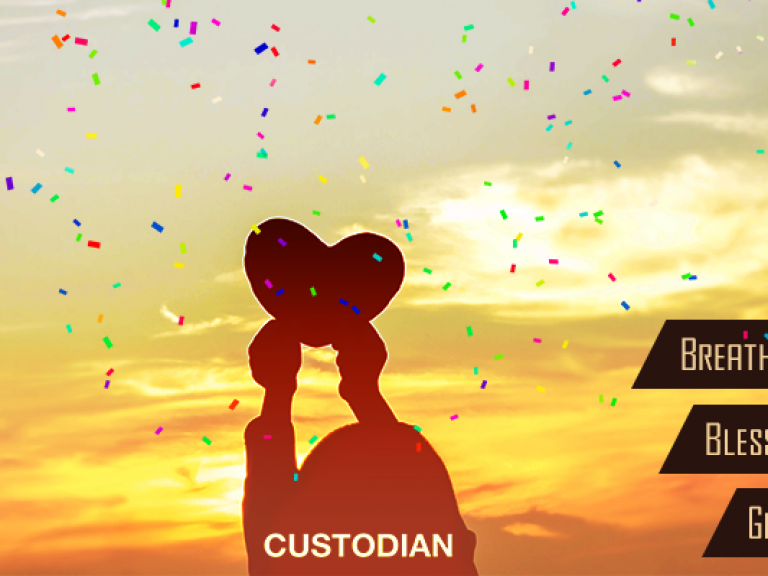
Commitment
You have to commit to your success. You have to throw your heart and your will over the fence. You have to step up. You have to get moving. No-one else can do it for you.
Making a commitment doesn’t have to mean stepping off a cliff: doing something irrevocable that you won’t be able to undo. Changing your mind, adjusting the plan, is always an option. But doors may close behind you as you step forward onto a new path: you may have to close some yourself. There may be no way back to exactly where you were before: having taken the step, you won’t be the same, for a start. You have to be ready for that. And when you step out onto the path, you don’t always know where it will lead you. You have to be ready for that too. Commitment is about making a decision to move: having the positivity, proactivity and responsibility to say: ‘Yes. I am going to do this.’
Discipline
The word discipline has taken on such negative connotations – usually to do with being punished or penalised in some way, or forcing yourself to do things you hate doing! But it actually means systematic activities or conditions, to which we submit ourselves in order to develop our physical, mental or spiritual powers and improve our effectiveness in whatever it is we are trying to do. Discipline is about training ourselves for success. It is about acknowledging that if we apply ourselves intentionally to the goals and guidelines we set for ourselves, we will make more progress than if we do what we feel like, as and when we feel like it.
There’s a discipline to closing doors. It’s discipline because it has to be done:
• Regularly: not just when things reach crisis point, or when I happen to feel like it
• Intentionally: with a view to achieving specifi cgoals, not just on a whim
• Ruthlessly: whether I feel like it or not, and especially when it’s hard.
Any discipline is the same. There’s discipline in taking charge of your health: getting enough sleep and exercise, losing weight, beating your addictions. There’s discipline in taking charge of your time: prioritising your activities, pruning inessentials so that you devote enough time to your goals. There’s discipline in setting goals and drawing up To Do lists; setting aside time every day for your visualisations, affirmations or Success Journal; going out and systematically practising your dislikes! There’s discipline in getting up every morning and resolving to do something, today, to further your success.
Whatever your success goals, I guarantee you they require discipline in some area. If you’re an aspiring athlete, dancer or musician, you already know this. If your success goal requires study, you already know this.
If you thought you’d sit back and wait for the free lunch – sorry. Success takes work. And work is easier, more efficient and more effective if it’s done in a disciplined way. Going with the ‘flow’ may sound easy – but it’s not. It takes discipline to release what needs to be released, in order to step into the flow. It takes discipline to grow spiritually, to develop your intuition, in order to see the opportunities the flow brings you. It takes discipline to manage your life and resources, so that you are able to seize those opportunities and make the most of them.

Patience
As children get older, we are supposed to develop a greater capacity for what the psychologists call ‘delayed gratification’. When we are little, we want what we want now – and if we don’t get it now, we spit the dummy. We eat the chocolate icing off the cake first, because we can’t wait: the good bits come first – and we can drag our feet on the less pleasant bits later. As we mature, we learn that sometimes we have to wait for what we want. We learn that sometimes we have to put in some effort, and go through some hardship, in order to earn or achieve the good bits. We eat the cake fifi rst, because we know the icing will taste all the sweeter afterwards...
There will be times in the success journey when we will just have to wait to see the fi nal outcomes we desire. We will have to invest and work – and perhaps sacrifice – in the short term, in order to reap the rewards in the longer term. ‘Quick fix’ solutions rarely solve problems effectively. ‘Get rich quick schemes’ are often more like Get Poor Quick schemes with good marketing... Great oak trees grow from little acorns – but not overnight.
The fact is, some adults are better at delayed gratification than others. If this isn’t your strong suit:
• Set powerful goals. If the goal is powerful enough, you can put in (and put up with) a lot, over the long haul, in order to get there.
• Set some short-term success goals, with their own benefits and staged rewards, along the way: gratification too long delayed can erode our motivation.
• Discipline yourself to greater patience. Practise earning treats – and delaying them: leave a little longer, each time, between achievement and payoff. Eat the cake before treating yourself to the icing: literally, if this is one of your weaknesses!
I know the cool T-shirts and demonstration slogans say: ‘I want it NOW’. But growing in patience is growing in maturity. It develops detachment: focusing on the journey, not the results. It releases judgement, short-circuits frustration and enhances relationships. You might want to give it a try...
Challenge
Successful people get outside their comfort zones: push themselves out there, if necessary. You know which boundaries are set by your core values – and if you’ve set congruent goals, you won’t be trying to force yourself past those lines in the sand. But your comfort zone also has boundaries that are set by unrealistic, negative, blaming and reactive thinking. Sometimes you just have to get out there and challenge your fears and learn to like your dislikes.
Persistence
Once you’ve come to grips with commitment, discipline, patience and challenge, persistence is easy – however long and hard and discouraging the journey may seem.
• You'll persist because you've made a commitment – to yourself and others – to see it through.
• You'll persist because you've developed the discipline to do what it takes: regularly, intentionally and ruthlessly. You won’t be hard on yourself – but you’ll be fi rm!
• You'll persist because you've developed the patience to wait for the pay-off, knowing it'll be worth it in the end. As long as you're seeing progress, and enjoying the process, you can wait...
• You'll persist because you'll see hardships, setbacks and delays as opportunities for learning and character-building – which will give you even greater power and resources with which to pursue your goals.
So that’s the ‘bad news’!
That’s what it takes to play the serious game with enough seriousness to win.
In ancient China, if a student wished to become proficient in archery, for the first six months, the teacher would ask him to hold a heavy piece of wood, with his arm straight out in front of him, for increasing lengths of time. In between periods of doing this, he was to look for an eagle high in the sky and never lose sight of it, for hours on end. All this without once lifting a bow. But when the six months were over, when the student finally picked up his bow, the arrow would hit the target with unerring accuracy. Strengthen the arm and eye, and the archery almost takes care of itself.
In the same way, if we strengthen our commitment, discipline, patience, challenge and persistence in the small things of daily life – success in our chosen field will follow. Are you ready to give it go? Commitment, discipline, patience, challenge and persistence are your five core strengths for managing your life.
>>> Coming Next: Managing your life
Please note: This is an extract from the Signposts for Success – it may not contain the exercises from the full version of the book/audio set, for full version please contact us or follow our blog for more.
Thank you,
The team@Custodian








